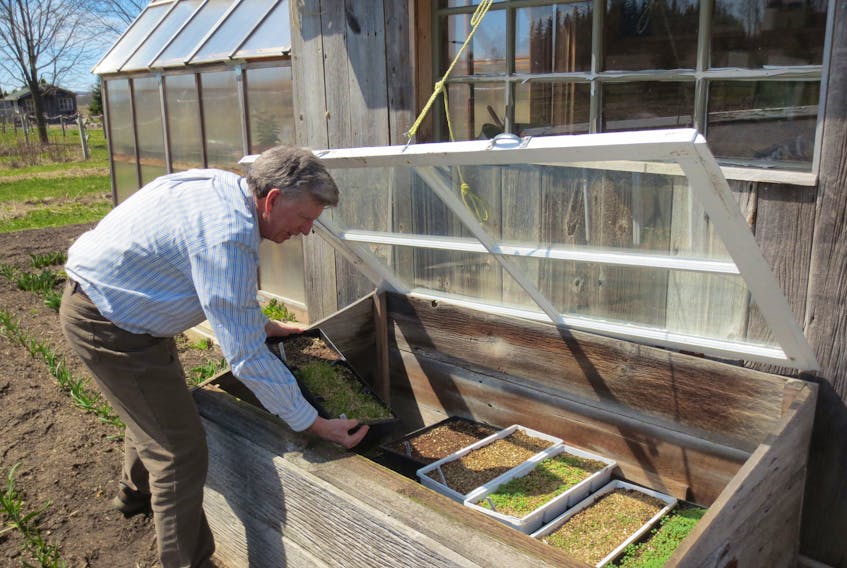There are two types of people thinking about planting in the veggie garden right now: planners and procrastinators.
The planners are the people whose yields are out of this world, with a planting and harvesting schedule that begins with seedlings back in February and continues with cold frames and heat tunnels into December.
Then there are the procrastinators – no shame here. They started out the season with good intentions, and maybe have not yet got around to planting anything.
Come together, gardeners – now is a great time to plant for everyone. No frozen fingers sowing seeds into the soil like in early spring, but maybe frozen fingers when it comes time to harvest this crop. That is not today’s problem though.
Things to plant in late August
The “Tough Greens” – lettuce, Swiss chard, spinach, kale and collard greens.
You could call these the tough greens because they will make you strong like Popeye, or because they can get tough in texture if allowed to grow past maturity. We refer to them as the tough greens because they stand up well to cold – with spinach and Swiss chard surviving even light frost. In fact, many people report they become sweeter in the coolers temps as it allows for the sugars to fortify. Perhaps, but no amount of naturally occurring sugars are going to move these greens to the dessert table.
Here are some things to consider for late-season greens:
• For those that are not frost hardy, consider your first frost date and count back from the number of days to maturity. For example, if your first frost is Nov. 1, a tender green with 50 days to maturity should be planted at the latest by Sept. 10.
• Get an extension. This is a lot more fun than bargaining for an extension on that assignment, but it can involve an equal measure of creativity – building your own season extender. This can come in many forms, the most practical of which for home gardeners is usually a cold frame or “grow tunnel”. Cold frames sit on the ground with a slightly elevated piece of glass angled towards the south to catch sunlight, creating a mini greenhouse. Challenge your creativity by sticking to leftover building materials, as Mark did. High tunnels are row covers made affordably using greenhouse poly and simple hoops to elevate it off the crop. The greenhouse effect of a well-designed cold frame or grow tunnel can add up to six weeks for frost-tender crops and keep your frost-hardy crops, such as kale or radishes, going all winter.
Garlic
You might be asking yourself, “isn’t the fresh garlic crop just coming in now?” Correct, garlic is planted again almost as soon as it is planted for next year’s crop. You could wait and plant it as late as next spring but allowing it to establish before winter will give you bigger, sweeter garlic bulbs.
• Like anything, with garlic you will reap what you sow – so find yourself some big, juicy bulbs of this year’s crop and pull them apart into cloves. Look for “music” variety, as it is proven reliable. Sort out any small, deformed, soft or diseased cloves and save the best ones for planting.
• Garlic likes open, sandy soil so if you’re on clay, it would be helpful to amend with sharp builder’s sand. As a “heavy feeding” crop, garlic benefits from generous amounts of compost, so top dress some of that while you’re at it.
• Make a trench 6 cm (2-3 inches) deep and drop each clove pointy-side-up into the trench 20 cm (7 inches) apart, in rows that are 50 cm (1.5 feet) apart.
• Close the trench and water deeply, it should only take one deep watering to get going.
• By fall, you should see green shoots. Cover these with 30 cm (1 foot) of straw mulch before winter. Next year in June, you will be able to harvest the scapes, which are delicious and by harvesting, will increase the size of the bulbs, and this time next year you will be telling all your friends how you ended up with the best garlic crop on the block.
Gardening is something we often do for our future selves, so do your future self a favour by planting this fall’s greens or next summer’s garlic today.
Mark Cullen is an expert gardener, author, broadcaster, tree advocate and member of the Order of Canada. His son Ben is a fourth-generation urban gardener and graduate of University of Guelph and Dalhousie University in Halifax. Follow them at markcullen.com, @markcullengardening, and on Facebook.









